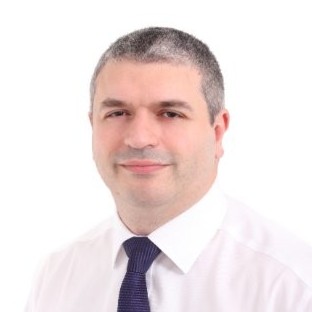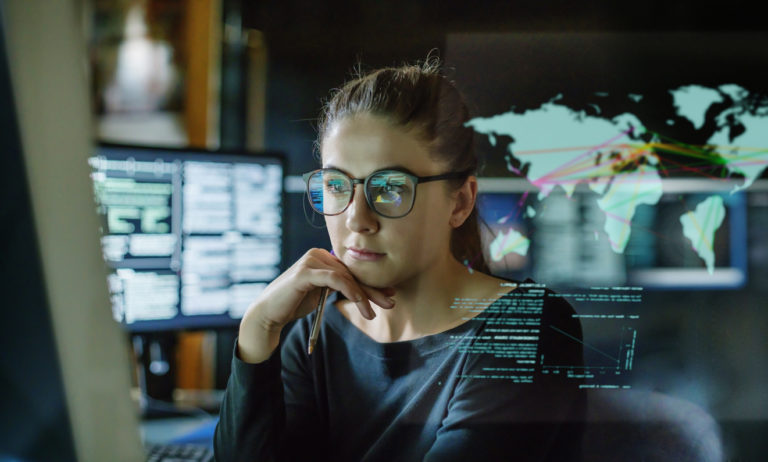It’s a noble ambition for any community to want to work together towards a shared vision. But for a whole city to commit to that is remarkable, especially as pressures on individual organisations intensify in the current climate. Yet that’s what’s happening in Leeds, the UK’s third largest city.
Its senior leaders are working together to realise a vision to make Leeds the best UK city. That means real commitment to align their priorities to what works best for the greater good of the city and its people.
Building the right foundations is key to success and the city’s digital capabilities are at the heart of this, explains Leonardo Tantari, Chief Digital Information Officer, Leeds City Council and for NHS (Leeds) West Yorkshire Integrated Care Board.
The integrator
“I’m an integrator. My role is to bring about a game-changing impact for the city through digital technology. It has the potential to connect and transform so many fundamental aspects of life.
“It’s about more than deploying world-class digitisation. It means changing how people think and work,” says Leonardo.
“We need to streamline and automate how we work so that our staff can focus on delivering the best services to our people rather than on dealing with sometimes inefficient and complex processes.”
“It’s an immense opportunity and challenge in terms of what we can achieve. But Leeds is known for its remarkable ‘can do’ approach. Its culture is to embrace opportunities and new ideas, to do more and go further. People – investors – see and respond to this.
Building for business
Leeds is already a UK-leading digital and data industry hub. It is home to more than 3,000 data and digital companies, ranging from start-ups to big corporates.
The Leeds Institute for Data Analytics provides a unique, multi-disciplinary environment for world-class data analytics, research, education and training, and the Leeds Care Record pioneered joined-up data for informing healthcare professionals about those in their care.
Now the aspiration is to take the city to another level – from good to great.
Building on Leeds’ transformative approach and embracing the art of the possible, a newly established strategy and innovation team will deliver innovative digital solutions. They will showcase new opportunities and proof of concepts to demonstrate how they can work with services to do things differently.
They will connect and coordinate with other activity across the city, including economic development and the emerging innovation arc, to promote best practice throughout the city’s innovation framework. In doing so, this will further cement Leeds’ position as a centre of innovation excellence.
“From start-up businesses operating out of people’s bedrooms to large corporates, such as banks – people are looking for stability, great connectivity, support with innovation and the potential to grow. Leeds is seen as the place where things happen and more and more businesses are joining us in our ambition,” says Leonardo.
Ground breaking new data platform
Of particular interest to external audiences is the emerging Leeds Office for Data Analytics. This will provide a secure platform enabling the sharing of population data for researchers, modelling artificial intelligence, and machine learning.
By joining up systems and approaches to enable a brilliant flow of bigger data, it will provide unprecedented insights for improving healthcare and wellbeing, education and employment, research and innovation, and business and the economy.
“Providing better access to bigger data will help us understand how to transform services in ways that benefit local people at all stages throughout their lives,” says Leonardo.
“We’ll be able to reduce inequalities more effectively by targeting resources where they are most needed. This ground-breaking model could be applicable to our region, our nation and even internationally.”
A plan for everyone
Leeds comprehensive new Digital Strategy, published autumn 2022, covers data management, connectivity and infrastructure, digital inclusion, skills and ethics.
Developed following in-depth, citywide consultation, the Strategy sets out bold ambitions. These are grounded in tangible ways in which digital integration and innovation will help Leeds become ‘the best city’. For example, Leeds will
- connect up to 90 per cent of households and businesses for gigabit speed broadband
- secure people’s data via a 24/7, 365 Security Operations Centre
- ensure secure and safe access to that data by those who need to have access to it
- offer people – especially those furthest from the job market – life-long learning opportunities to ensure they have the skills they need, and
- apply appropriate scrutiny to decide in each situation whether new digital technologies are ‘the right thing to do’.
Tech for good
Being the best city means best for everyone. Leeds’ ambition is clear that it’s not about using ‘tech for tech’s sake’ but using ‘tech for good’. That means involving Leeds’ people when developing services so they meet a diverse range of needs.
And it means leaving no one behind. The barriers to digital inclusion for many people are complex and link to wider factors beyond the common issues of lack of skills or access to a device.
No one understands this better than 100%Digital Leeds. An integral part of the City’s digital integration work, this award-winning work is the largest and among the best digital inclusion programmes in the country.
The 100%Digital Leeds team knows there is no ‘one size fits all’ to increasing digital inclusion, as people’s needs, barriers and solutions vary depending on their personal situation.
The team works with over 200 organisations, settings, and colleagues across the City Council, third sector, and health and care organisations. Together, they identify the most digitally excluded people and communities and design ways that enable people to use digital tools, technology, and services in the right way for them.
100%Digital Leeds has brought over £2million external funding into the city to support digital inclusion. Much of that money has gone into building the digital inclusion capacity of Leeds’ third sector organisations.
The team’s significant and growing portfolio of success includes working with partners to set up Digital Health Hubs in local communities. There, people are helped to get online and make the most of the internet to improve their health and wellbeing.
More than 25 Digital Health Hubs have already been established in two Local Care Partnership areas, and more than 1,500 people have been supported to use digital health tools and services. With £200,000 of Health Inequalities funding to support the next wave of development, the model will be rolled out across the city over the next 18 months, working with the Local Care Partnership Development Team.
Building the highway
“This is about so much more than digital and tech. It’s about the impact on people’s lives. If I step back, I see lots of little roads not connected and I’m trying to build the highway to allow rapid flow of information,” says Leonardo.
“I’d love to see, for example, a really clear flow of information and connectivity through every part of the health and care system, so that healthcare professionals can follow a person’s pathway end-to-end. And, through that, to have helped enable excellent outcomes for people’s health and huge efficiencies for our health and care services.”


